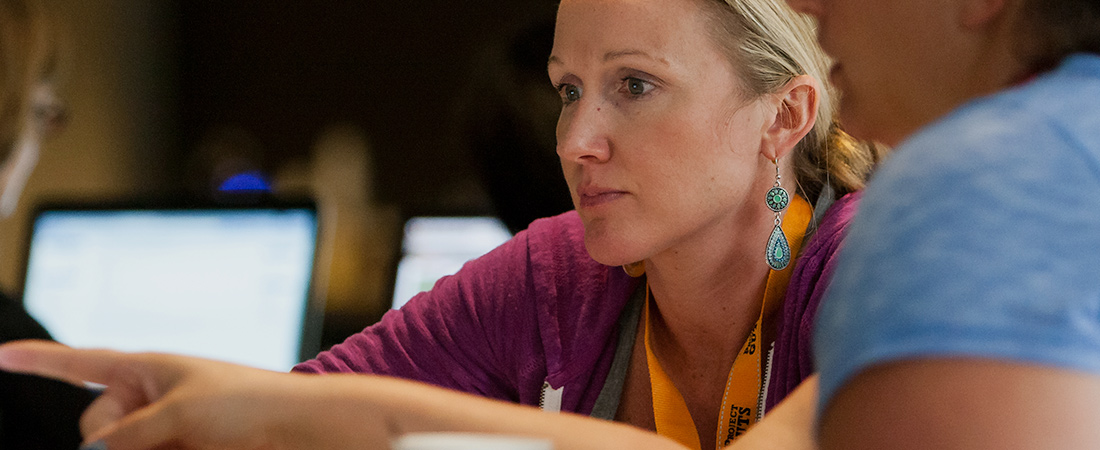
In the United States, EDC’s teacher professional development programs help educators improve their craft.
EDC develops practitioner-informed professional development and resources that build professional and organizational capacities. We engage educators, health providers, and community agency staff in communities of practice that reflect current findings on effective strategies to support adult learning and systems improvements.
We develop and deliver training and technical assistance to frontline staff in classrooms, clinics, and communities that support their use of evidence-based practices to enhance services. We also build policymakers’ capacity to collect, analyze, and use data to guide decision-making.
Learn about EDC’s work to strengthen early childhood interventions with Continuous Quality Improvement.
Related Content
A Second Chance at School in Mali
In Mali, accelerated education is helping thousands of children get back to school.
Helping All Children Learn and Thrive
EDC’s David Jacobson discusses his ideas for changing—and improving—early childhood services.
Addressing the Opioid Crisis through Home Visiting
Home visiting programs are critical to supporting children affected by opioid misuse, says Loraine Lucinski.
Crisis, Conflict, and Resilience
In times of crisis or conflict, some communities struggle while others pull together. It’s all about resilience.
Accelerating Education in Liberia
An estimated 300,000 Liberian children do not attend school. What’s being done to provide more access to education?
3 Ways Schools Can Support Children Affected by the Opioid Crisis
Schools are uniquely positioned to address the needs of children exposed to trauma, says Shai Fuxman.
Projects
Resources
Here are a few of our resources on capacity building for individuals, organizations, and systems. To see more, visit our Resources section.
Sustainable Finance Initiative: Identifying multi-year financing opportunities for school meal programs with a focus on low- and lower-middle income countries.
This website helps suicide prevention professionals—both individuals and organizations—develop messages about suicide that are strategic, safe, and positive.
This report spotlights how St. Joseph’s University Medical Center is using the Elder Mistreatment Emergency Department Toolkit to identify and address elder mistreatment.
This report outlines the need to work together with new and unlikely allies, other than education actors alone, to reimagine how our interconnected systems—health, education, economic development, and the protection of our planet—can work toward Sustainable Development Goal 4: Quality Education and beyond.
This tool helps Head Start programs better understand the link between their school readiness goals and their health service plans.
This report builds on the DeliverEd research in Ghana, Pakistan, Jordan, Sierra Leone, and Tanzania that sheds light on the effectiveness of delivery approaches for improving policy implementation. It proposes a framework for policymakers to consider when determining whether and how to launch, learn from, and scale and sustain delivery approaches.
This fact sheet describes EDC’s Supporting Readiness through Vital Civic Empowerment (SRVCE) program.
This guide supports educators in creating, planning, and implementing innovative media projects with young people as part of the Adobe Youth Voices program.
The USAID Huguka Dukore activity is a 5-year (December 9, 2016-December 8, 2021) youth employment program that will provide 40,000 out-of-school youth, including 34,000 new youth and 6,000 Akazi Kanoze alumni, with market-relevant employability skills and pathways to new or better employment.
A participatory research with youth and communities in Southern Philippines
